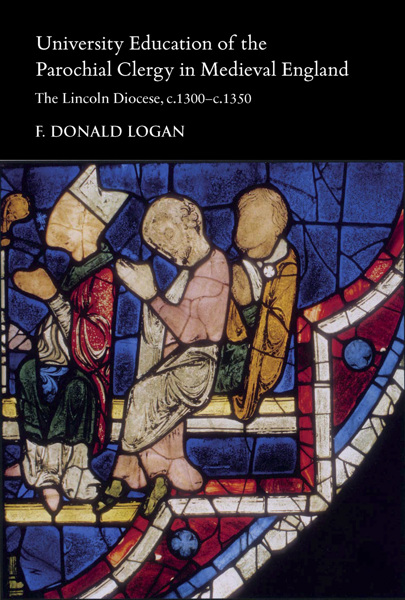
A Renaissance of Rhetoric in Late Medieval Oxford
Treatises of the Oxford Rhetoricians, 1364–ca.1435
Martin Camargo
- Pages: xii + 584 p.
- Size:150 x 230 mm
- Language(s):English
- Publication Year:2025
- € 121,00 EXCL. VAT RETAIL PRICE
- Ref.: 978-0-88844-240-6
- Hardback
- Available
“In A Renaissance of Rhetoric in Late Medieval Oxford, Martin Camargo makes available a remarkably diverse collection of Latin rhetorical treatises on the ars dictaminis created at Oxford at the turn of the fourteenth and fifteenth centuries. Little known to all but specialists in medieval rhetoric, these treatises present a rich body of reflections on Latin writing, figures of speech, and the musicality of letters. A wide-ranging introduction across five chapters, contextualizes them in the history of rhetoric and the teaching of writing practices in England; annotated editions and commentaries illuminate the textual cultures of the authors; and the accompanying translations and commentaries allow modern readers to enter into the complex, refined world of the great English masters of late-medieval rhetoric. The book should prove a crowning achievement to Martin Camargo’s scholarly career.” — Benoît Grévin, L’École des hautes études en sciences sociales
“Martin Camargo’s book on rhetoric in Oxford during the late medieval period is a stunning achievement. The author surveys the development of rhetorical theory at Oxford in the later Middle Ages in numerous important treatises heretofore rarely examined. The introduction to the volume clearly and succinctly places these texts in their intellectual milieu. The editions that form the heart of the volume, most of which are based on manuscripts written in an Anglicana script difficult to decipher, reveal Camargo’s absolute command of the genre. The commentaries and translations provide scholars and students with further valuable materials. A Renaissance of Rhetoric in Late Medieval Oxford should be on the bookshelf of all those interested in medieval rhetorical theory and the intellectual life of Oxford in the fourteenth and fifteenth centuries.” — Frank T. Coulson, The Ohio State University
Martin Camargo is Emeritus Professor of English, Classics, and Medieval Studies at the University of Illinois, Urbana-Champaign, and has held previous appointments at the University of Alabama (1979–1980) and the University of Missouri (1980–2003). An award-winning teacher of undergraduate and graduate students, he also served as head of three different departments and as a dean in the College of Liberal Arts and Sciences. The principal focus of Camargo’s teaching and scholarship has been literature written in England during the fourteenth and fifteenth centuries. His research on vernacular poetry, especially works by Geoffrey Chaucer, and on medieval Latin rhetoric has received fellowship support from the Alexander von Humboldt Foundation, All Souls College, the American Council of Learned Societies, and the National Endowment for the Humanities. He has published five books and more than sixty articles and has maintained an active research program since retiring in 2021.
This book documents an unprecedented effort to produce new treatises on rhetoric at Oxford in the fourteenth and fifteenth centuries. Part 1 includes chapters on the origins, causes, and eventual decline of this "renaissance," as well as on the new textbooks and their authors, tradition and innovation in their rhetorical precepts, and the pedagogical contexts in which they were deployed. Part 2 consists of Latin editions and facing English translations of eight rhetorical treatises. Four of the Latin texts have never been printed before, and all eight are translated here for the first time.
Preface
Abbreviations
Part 1. Rhetoric in Late Medieval Oxford: Authors, Doctrines, Contexts
Chapter One. The Origins and Causes of the Oxford Renaissance of Rhetoric
Chapter Two. New Textbooks and Their Authors
Chapter Three. Tradition and Innovation in Rhetorical Precepts
Chapter Four. The Oxford Rhetoricians and the University Statutes
Chapter Five. Diffusion and Decline of the Oxford Renaissance of Rhetoric
Part 2. Latin Texts, English Translations, Commentaries
Note on the Texts, Translations, and Commentaries
Anonymous, Floride dictacionis compendium
Anonymous, Forma dictandi
John of Briggis, Compilacio de arte dictandi
Thomas Merke, Formula moderni et usitati dictaminis
Thomas Sampson, Salutarium (Introduction)
Thomas Sampson, Modus dictandi
Anonymous (Simon?), Regina sedens Rethorica
Simon Alcock, De modo colorandi ac etiam de modo disponendi terminos
Commentaries
Bibliography
Index
Manuscripts
Scriptural Citations
Premodern Authors and Works



